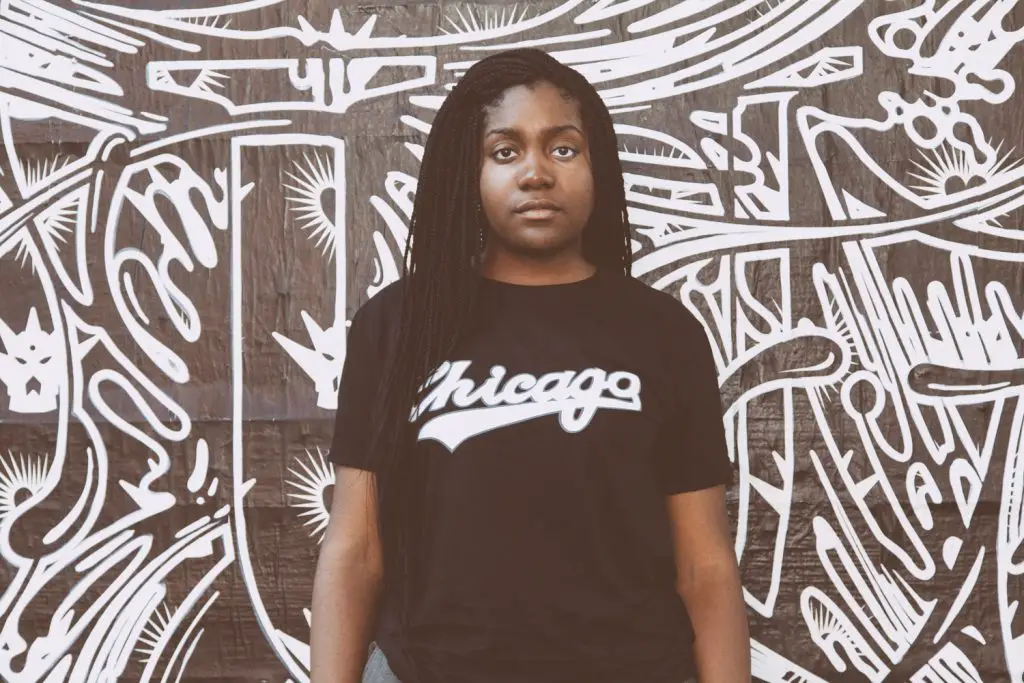Noname, formerly known as Noname Gypsy, is one of the most interesting, creative, talented rappers in the hip-hop game right now. Chicago, her hometown, has produced some of the most famous names of the genre, including Common, Lupe Fiasco, Chief Keef, Chance the Rapper and the god himself, Kanye West. And yet, despite the cascade of talent that threatens to drown out her voice, with her unique blend of intimacy, tongue-twisting vocabulary and intricate production, Noname has broken through the noise and established herself as a tour de force in the scene.
Her success derives its significance, in part, from the fact that she is a female artist in a male-dominated genre. Her most recent album, “Telefone,” has solidified her as one of the elite female rappers, putting her on a pedestal near Nicki Minaj, Missy Elliott or even Lauryn Hill. Noname has a much different persona than her successful peers, however. Where rappers like Lauryn Hill or Nicki Minaj have built their image on aggressive confidence and open sexuality, Noname expresses herself through a poetic vulnerability that, paradoxically, empowers her.
First, there is her style. Her voice is soft and melodic, and she showcases her skills through a subtle mastery of flow rather than a passionate delivery, but that is not to say that Noname is emotionally staid. In fact, if you listen to her verse on “Dead Friends” by Kirk Knight, you will see that she explodes out of the gate with a barrage of poignant lyrics about the violence in Chicago.

But, for the most part, her biggest works have been more melancholic. Her verse on “Lost” by the Chance the Rapper and her single “Sunday Morning,” both breakout songs for her, are more emblematic of her typical work; they are intelligent, calm and influenced heavily by her time doing spoken word as a young adult.
In addition to her measured delivery, the sui generis sonics of Noname’s flows help distinguish her even more from her contemporaries. Her beats are based in funk, jazz and R&B, and, on “Telefone” in particular, they are frequently abstract. Take the beat to “Sunny Duet,” ft. The Mind, for example. The beat has layers of harmonies that all seem to play exclusively on the offbeats and accomplish a “rimshot” effect with a series of asynchronous snaps. Noname remains un-phased by the untethered tempo, offering her voice as a sort of metronome for the listener. She also has a tendency to choose beats that are uplifting, even for her most despondent of songs. For example, “Casket Pretty” features a sample of a baby giggling, but its accompanying verse are heartbreaking.
“All of my niggas is casket pretty
Ain’t no one safe in this happy city
I hope you make it home
I hope to God that my tele’ don’t ring
…
Where’s love when you need it
Too many babies in suits.”
And so, in an artful use of juxtaposition, the sound of the baby’s laughter slowly changes into something haunting. Noname is obviously not the only rapper to address issues like violence in the city, but the manner in which she approaches the subjects sets her apart. There is rarely anger in her voice, nor is there aggression; instead, she finds her power in being wickedly intelligent and boldly vulnerable. She expresses her weaknesses, fears and insecurities openly, and addresses her own flaws right alongside society’s. The result of this honesty is that when Noname talks, you listen.
This soft, but fiercely intelligent, persona is particularly interesting in the context of the female rap scene. Most similarly successful female rappers choose to adopt the same braggadocio of their male counterparts in order to subvert expectations and push back against gender roles. Noname, however, opts to use prototypically feminine elements in the pursuit of her empowerment, a concept summed-up by her lyrics in the song “Samaritan.”
“Got me feelin’ like I’m tall, dumb, and ugly
Make a home on the stage
Where all of the people love me
‘She’s so lovely, rappin’ about her broken
Wearin her false lashes and hopin she gettin chosen
You a female rapper. Don’t rap about that shit
You ‘supose to be a bad bitch
Or at least a little confident.’”
The issue of empowerment in femininity is further complicated by Noname’s approach to sexuality. Female rappers have often used the stage provided by the genre to reclaim sexuality and portray sex in a way that puts women in control. Nicki Minaj is the current messiah of this gospel, and her confident, aggressive approach to sexuality has made her a feminist icon. But Noname takes a different approach to the matter. Take, for instance, the lyrics to her song “Dizzy.”
“Lotion on my skin got me feeling super smooth
Like I could save a life
Like I could write a dissertation on virginity
Tell a couple girls it’s OK if you wanna wait to 90
You ain’t gotta rush, the satin and the red cotton sheets gonna be there.”
This is not to say that Noname is ashamed of her sexuality. In “Baby,” she talks openly about a fictional sexual relationship with a man she meets. She not only depicts actual sex scenes, but even mimics a man’s voice for a stanza and playfully mocks men’s desire to appear masculine and dominant in a relationship. However, just a verse later, Noname finds herself questioning the benefits of engaging in sex early with a significant other. Her examination of sexual theory shows that she is unafraid to talk or have sex, but that she considers the act more important than modern culture might. She seems to suggest that, in our effort to stop treating sex as a dirty secret, perhaps the pendulum has swung too far the other way.
Whether or not you agree with her assertions, Noname’s perspective is compelling. Her lyricism itself is impressive and technical. Her imagery is gorgeous and cloaked in symbolism. Her production is strange and mellow. She subverts gender norms without adopting traits associated with masculinity. Above all, her honesty and vulnerability make her one of the most fascinating artists in hip-hop right now.

















